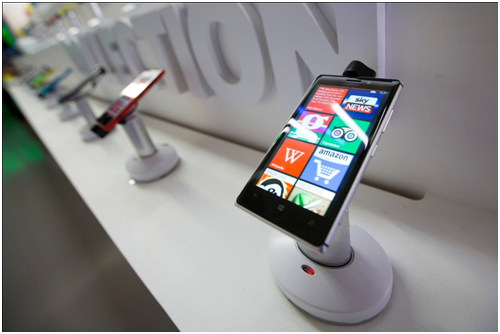Microsoft officially owns Nokia's handset business, which is now old news. The $7.2 billion deal (much less than what Microsoft paid for Skype in 2011 and what Google paid for Motorola), and in one clear-cut leap it turns the software company into one of the world's largest hardware companies, not only becoming the main source of Windows Phone devices but also taking on the hundreds of millions of low-end phones that Nokia currently produces for developing markets. Unusually, Microsoft's newly found hardware division will be called Microsoft Mobile the much-reduced-in-size Nokia will continue to operate in Finland under the same name while it works on R&D and selling mobile network infrastructure hardware. This means your next mobile phone could be called the Microsoft Mobile Lumia Windows Phone.
This shift is almost entirely predicated on Microsoft's belief that it must succeed in the mobile space both in terms of Windows Phone and Windows 8 tablets if it wants to retain a degree of consumer significance. Microsoft must believe that, by becoming fully vertically integrated, it will finally be the master of its own destiny, allowing it to create the same convincing experiences and profit margins as Apple.
This was undoubtedly the utopian vision that was publicized in the Microsoft boardroom last year before a bid was made but now, as the acquisition finally closes, the harsh reality will quickly get accustomed. Nokia sold 250 million handsets in 2013, but only 30 million of those were from the Windows Phone Lumia lineup. The other 220 million were low-end and low-margin Asha, Android (Nokia X), and feature phones. No one seems to know what the company plans to do with the non-Windows Phone segment of its newly formed Microsoft Mobile division even during its earnings call yesterday Microsoft didn't offer any clear guidance.
Let's not forget about the resemblance between the Microsoft/Nokia and Google/Motorola Mobility acquirement, too. Google toyed with the idea of becoming a handset maker for almost two years until eventually selling off the division to Lenovo. I wouldn't be massively surprised if Microsoft dawdles around with its new handset division for a couple of months before selling it on.
On the contrary, if Microsoft can use Microsoft Mobile to capture the high-end markets in US, Europe, and Asia with some stunning flagship phones, and at the same time use Nokia's manufacturing skills to capture the market share from Android in developing
markets, then maybe this acquisition will actually work out. In my opinion, that's a colossal maybe though.f
Ever wondered about owning a mobile application for your Business? Keep your business rolling with the latest mobile applications in place with SGS Technologie's Mobile application development services.












